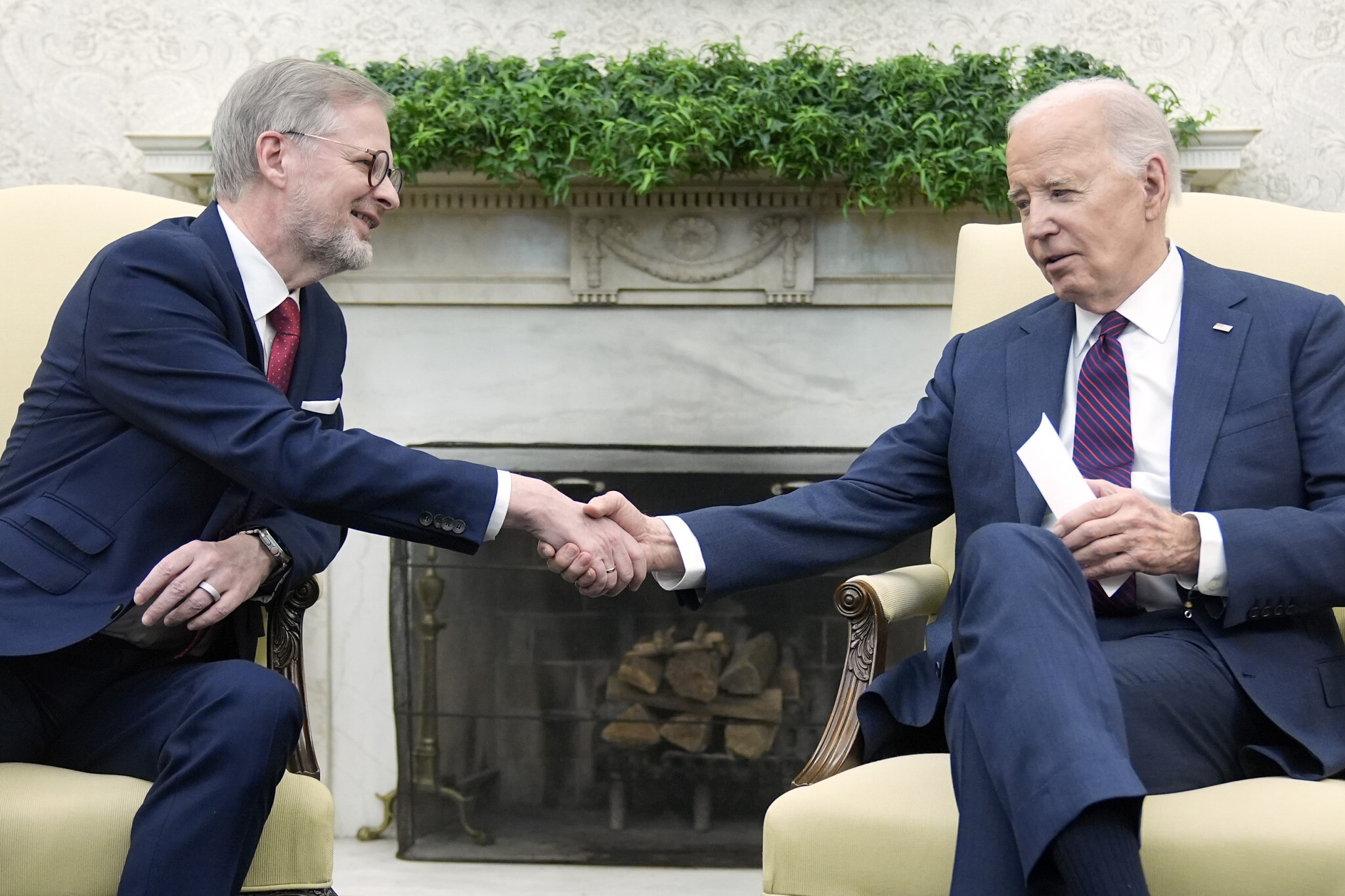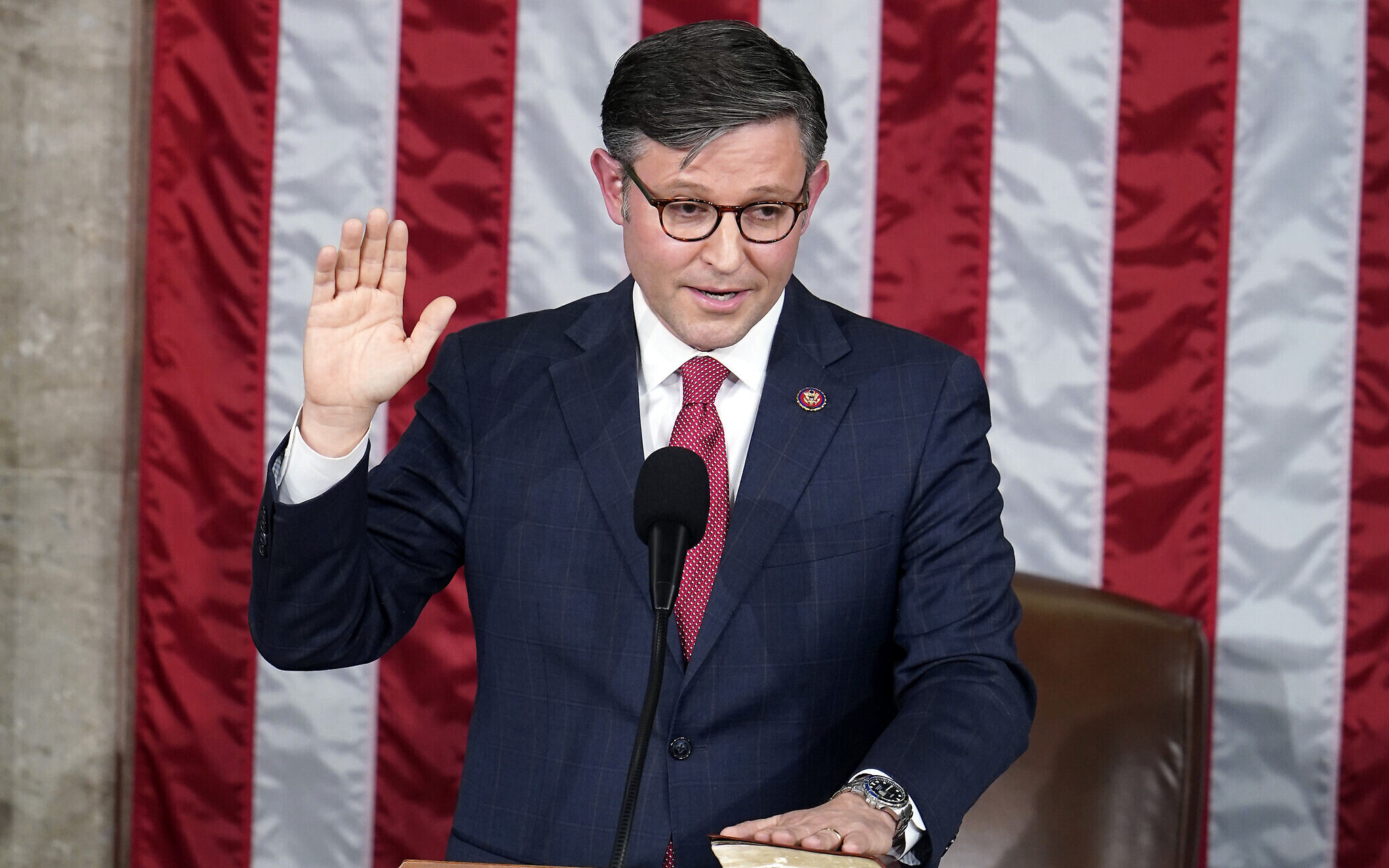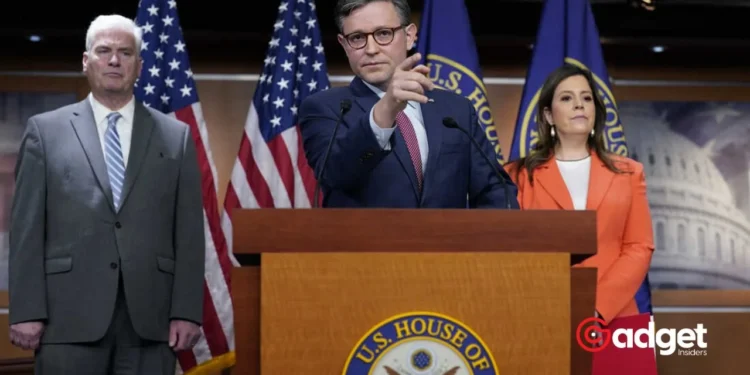In a pivotal week for international relations, the US House of Representatives, under the leadership of Speaker Mike Johnson, is set to cast votes on crucial aid packages for Ukraine and Israel. This development comes after months of internal party conflicts and external geopolitical pressures have shaped the legislative agenda.

A Strategic Shift in the US House
Speaker Johnson, at the helm of a fragile Republican majority, has announced a departure from the previous stance of blocking the security supplemental aid package, which had been passed by the US Senate in February.
The Senate’s package, worth $95 billion, aims to bolster Ukraine in its resistance against Russia’s aggressive invasion, with additional support directed towards Israel and Taiwan.
Despite the sense of urgency that was communicated by Ukrainian President Volodymyr Zelensky and his friends, the United States House of Representatives had been in a stalemate, with a conservative element within the Republican party exerting a significant amount of influence.
On the other hand, recent occurrences on a global scale, such as Iran’s direct attack on Israel, have spurred a reassessment of the strategy.
US House to vote on separate aid bills for Ukraine and Israel this weekhttps://t.co/bW4LPOXfQh
— The Defense Post (@DefensePost) April 16, 2024
“We won’t be voting on the Senate supplemental in its current form,” declared the representative of the US House, Johnson, signaling a move to consider the aid in separate segments. He further explained that this division would allow for amendments, though this approach might extend the decision-making process.
International Eyes on American Decisions
These judgments have become more complicated due to the geopolitical landscape. Ukraine is facing a substantial number of obstacles as a result of Russia’s intensification of its military assault. These challenges include recent territory losses and a catastrophic shortage of ammunition.

“There are precipitating events around the globe that we’re all watching very carefully, and we know that the world is watching us to see how we react,” Johnson articulated during a press briefing, underlining the global implications of the US House’s actions.
Internal Party Dynamics and Opposition
The path to this decision has not been straightforward. Johnson previously resisted calls for a standalone vote on Ukraine aid, linking it to broader concerns about illegal border crossings—a position that has seen considerable opposition within his party.
Marjorie Taylor Greene, a notable figure among the far-right faction, has expressed strong dissent, stating, “He’s not going to be speaker next Congress if we’re lucky enough to have the majority.” Her comments reflect the internal rifts that could influence the outcome of the upcoming votes.

The White House has also voiced its stance, with Press Secretary Karine Jean-Pierre emphasizing that any legislation must inclusively support both Israel and Ukraine. “We will not accept a standalone. A standalone would not help Israel and Ukraine,” she affirmed during a White House briefing.
A Week of Decisions
As the US House gears up for these critical votes, the international community and domestic political observers are closely watching. The outcomes could not only shape US foreign policy but also define the political future of key players like Speaker Johnson and his challengers within the party.
This week’s developments are a test of leadership and diplomatic acumen in navigating the intricacies of global politics and party dynamics. The decisions made could resonate far beyond the halls of Congress, affecting geopolitical alliances and the global balance of power.










